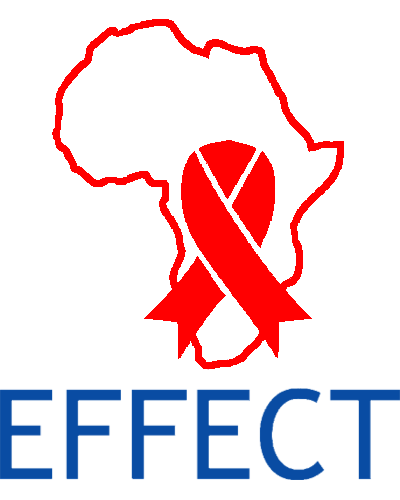EFFECT: Efficacy of Flucytosine and Fluconazole as Early Cryptococcal Treatment
The EFFECT cryptococcus trial is a randomized open label phase 3 trial testing the efficacy of a combined dual anti-fungal regimen cryptococcal antigenaemic patients who do not yet have cryptococcal meningitis.
Background to the trial and rationale
Burden of cryptococcal disease
Despite expansion of antiretroviral treatment (ART) programmes in Africa, about one-third of HIV-infected individuals still present for care with advanced HIV disease (AHD) (CD4 count of <200 cells/µl), and the incidence of opportunistic infections such as cryptococcal meningitis (CM) in this group is high. Furthermore, each year a number of patients drop out of HIV care, later re-presenting with AHD and complications such as CM. Consequently, CM rates are not decreasing in most of Africa. CM is the commonest form of meningitis in sub-Saharan Africa (SSA) and is a key driver of global HIV mortality resulting in ~180,000 deaths/year globally with over 75% in SSA, and accounting for 15%-20% of all HIV-related deaths. Targeting cryptococcal disease, prior to the development of life-threatening meningitis, can reduce this persistently high HIV-related mortality: this is an urgent goal of the World Health Organization’s (WHO) 2017 guideline on AHD management and required in order to achieve the 2030 United Nations Sustainable Development Goals.
Cryptococcal antigen (CrAg) screening and pre-emptive treatment
Over half of the patients diagnosed with CM die within 10 weeks in SSA, a death rate similar to Ebola virus disease. Fortunately, cryptococcal disease can be detected early, before the development of meningitis, using a simple point-of-care blood test for cryptococcal antigen (CrAg). Studies suggest that 70% of people testing positive for CrAg in blood would progress to develop CM or die without a diagnosis. Data shows that routine CrAg screening of patients presenting to HIV centres, combined with pre-emptive fluconazole treatment, can cost effectively reduce the risk of developing CM and reduce mortality. CrAg screening has now been incorporated into 28 national guidelines and screening programmes are being rolled out across SSA.
The problem: Need for a more potent antifungal treatment
There is now a considerable body of evidence revealing that CrAg-positive patients treated pre-emptively with fluconazole alone have substantially higher mortality compared to CrAg-negative patients with similar CD4 counts, despite this pre-emptive treatment (25%-33% mortality vs. 9%-15% in different studies). In the REMSTART trial, conducted in Tanzania and Zambia, there was 3-fold excess mortality in CrAg-positive asymptomatic patients, compared to CrAg-negative patients, with a similar risk of death observed from a recent study in South Africa. Up to 40% of those testing blood CrAg-positive may have subclinical (asymptomatic) CM at the time of the screening test, yet many patients still decline lumbar puncture and are thus not diagnosed with CM. Taken together, this suggests that more effective antifungal treatment may be needed to reduce these excess deaths and realize the full benefits of CrAg screening programmes.
Combined therapy of fluconazole plus flucytosine
The EFFECT trial aims to compare the efficacy of an oral combination of fluconazole plus flucytosine with fluconazole alone (the current recommended treatment) in reducing all-cause mortality in asymptomatic CrAg-positive patients in Tanzania and South Africa. There is now compelling evidence from the recently completed ACTA trial showing that combined treatment of fluconazole plus flucytosine for 2 weeks is well-tolerated and as effective as the standard of 2 weeks of intravenous amphotericin B plus flucytosine for in-patients with symptomatic CM. Mortality was almost halved compared to historic cohorts treated with fluconazole alone. Although the ACTA trial results cannot be directly generalised to CrAg-positive patients without symptomatic meningitis, flucytosine plus fluconazole could also be effective in reducing mortality associated with asymptomatic CrAg-positive patients. And importantly, this oral combination could be given to outpatients without any need for hospitalisation.
Impact
The impact of a combined treatment for CrAg-positive patients identified through screening has not yet been tested and robust clinical trial data are urgently needed to inform policy and practice. Demonstrating the effectiveness of the addition of flucytosine to the fluconazole treatment currently in use could have an important global impact on the reduction of AHD mortality as has been seen for CM inpatients.
Trial design
The trial is an open label phase III randomised controlled trial embedded in routine screening programmes in South Africa and Tanzania comparing 2 weeks of combined treatment of fluconazole plus flucytosine to fluconazole alone (the current standard of care) for treatment of asymptomatic CrAg-positive individuals with advanced HIV.
Trial Outcome measures
Primary Outcome:
All-cause mortality at 6 months after randomisation
Secondary Outcomes:
- Time to all-cause mortality within first 6 months
- All-cause mortality at 10 weeks
- Time to all-cause mortality within first 10 weeks
- CM-free survival to 6-months
- Incidence rate of symptomatic CM over 6 months
- Tolerability and safety: Proportions of participants developing clinical and laboratory-defined grade III/IV adverse events
- Efficacy outcomes by baseline CrAg titre/ CrAg semi-quantitative (SQ) assay score
- Health service and household costs per life year saved
A number of sub-studies are planned to maximise the utility of the EFFECT trial. An economic sub-study comparing societal cost and health benefits in both arms of the trial (Economic sub-studies), a sub-study looking at the efficacy outcomes by CrAg titre/SQ scores will be performed as well as sub-EFFECT and a situational analysis related to barriers in the health care system encountered when retrieving CrAg positive patients. Other sub-studies to be developed include studies on histoplasmosis and emergomycosis testing, qPCR of blood/plasma and CSF, HIV-1 viral load and viral resistance, antiretroviral drug levels, immunogenetics, CSF factors related to host inflammatory response and organism, that might explain the lack of symptoms or signs in subclinical CM and antifungal resistance studies in patients with antigenaemia who develop symptomatic CM while on pre-emptive treatment.
Trial regulation
EFFECT is registered with the ISRCTN Clinical Trials Register (ISRCTN30579828), SAHPRA (20210612), NIMR and relevant local ethics authorities.
